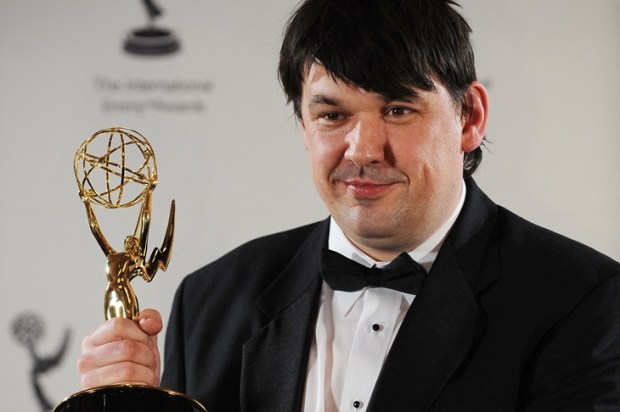From the large headings, multiple columns and country themed caricatures appearing in newspapers spread across kitchen benches and shaken out in trains it would seem that recent romping in the capital city is big news, expected to scandalise, titillate, entertain or concern us. The coverage dedicated to the topic is reminiscent of that devoted to the unravelling of the union of Prince Charles and Princess Diana in all its faithless crowdedness, the failure of that fairy tale wedding embedded in our collective memory as a sombre warning that reality and appearances can sometimes be very different.
In our egalitarian society, our politicians are not placed on a pedestal. Their lives are not the stuff of fairy tales and the extensive reportage on the unfortunate end of a long-term marriage appears out of proportion to its relevance to the business of Government. The party centrally concerned is not royalty but a politician. The marriage breakdown may be a personal tragedy for all involved but sadly, is not an uncommon occurrence in our society.
Our politicians are us, drawn from our ranks. Nelson Mandela believed that this was important; that it is the participation of ordinary men and women in decisions about the future that is the only guarantee of true democracy and freedom. He believed that it is the ordinary men and women of a country who are the makers of history. This may be so but, being ordinary men and women, they are subject to the same pressures and strains of life that exist in the community from which they come. As was Nelson Mandela.
Within the community, we do not presume to sit in judgment over the fractured marriages of our friends. Knowing less of the personal circumstances of strangers in Canberra we should be even more reticent to intrude in their misery. Who are we to judge?
Politicians are not fashionable in our country. They are often regarded with suspicion, their motivation and ambition mistrusted. Other times they are treated as a kind of public property, servants of the people expected to be available at all times to hear every gripe and complaint, however, lacking in merit and at the expense of their family time and private life. Even if they perform in an exemplary fashion we will begrudge the benefits accorded to some of them post their political career when the community from whence they sprung worries about making ends meet in our twilight years.
No, we do not love and often do not value our politicians but few amongst us are prepared to make the sacrifices of family, of privacy, of peace that comes with accepting public office. Those who do so must be moved by a strong sense of duty whatever other personal aspirations they may have. In her outgoing speech, former prime minister Julia Gillard noted that while politicians may not be fashionable they are committed and driven by a desire to serve the community. She said: “take it from me even as I go out the door, politicians work incredibly hard and overwhelmingly people come into this parliament with a sense of service.”
In the absence of a breach of some law or government policy or guideline, our politicians should not be judged by the sadly messy nature of their private lives but rather by the work they do. We have not elected them on the basis that they are paragons of virtue, nice as that would be. Bob Hawke considered the fact that he did not “exude morality” to be an asset, it added, he thought, to his credibility and he remains a popular former prime minister, regarded as always in touch with the common man.
In a letter to a “Young Poet” included in his book of poetry, Injury Times, Clive James wrote that one should not hold up a poet’s life as providing a roadmap to writing good poetry. A poet might be a role model for the ordering of phrases, for the use of imagery, for verbal precision but the disorder, the chaos, the vices of the poet’s private life were not relevant to their skill. He wrote”
There is nothing to be learned from how Robert Lowell, in his mania, stomped around pretending he was Hitler, or proposed to the air hostess on a transatlantic flight. Try to learn instead from how he put his images together in “The Quaker Graveyard in Nantucket.”
That there are those in office whose private lives are exemplary is heartening and inspiring but this is not the measure by which their performance as politicians is required to be assessed, absent a breach of some applicable law or guideline or claim of undue influence that makes private matters relevant to their work performance. Nor is it impermissible or hypercritical for a politician to support ideals of how life should be lived while on a personal level failing to reach those ideals.
That some politicians will stumble and fall in their personal lives, while dedicating themselves to public service, is not surprising. It may even be a likely and foreseeable risk of fulfilling the unending, urgent demands of public office in a usually adversarial political environment. We should not be quick to weigh in on personal tragedies in the lives of politicians. These are real people, not cartoon cut-outs, at the heart of recent stories exposing private misfortunes, and they all suffer, just like ordinary men and women do.
Illustration: Auspic/Department of Parliamentary Service.
Got something to add? Join the discussion and comment below.
Got something to add? Join the discussion and comment below.
Get 10 issues for just $10
Subscribe to The Spectator Australia today for the next 10 magazine issues, plus full online access, for just $10.


























Comments
Don't miss out
Join the conversation with other Spectator Australia readers. Subscribe to leave a comment.
SUBSCRIBEAlready a subscriber? Log in